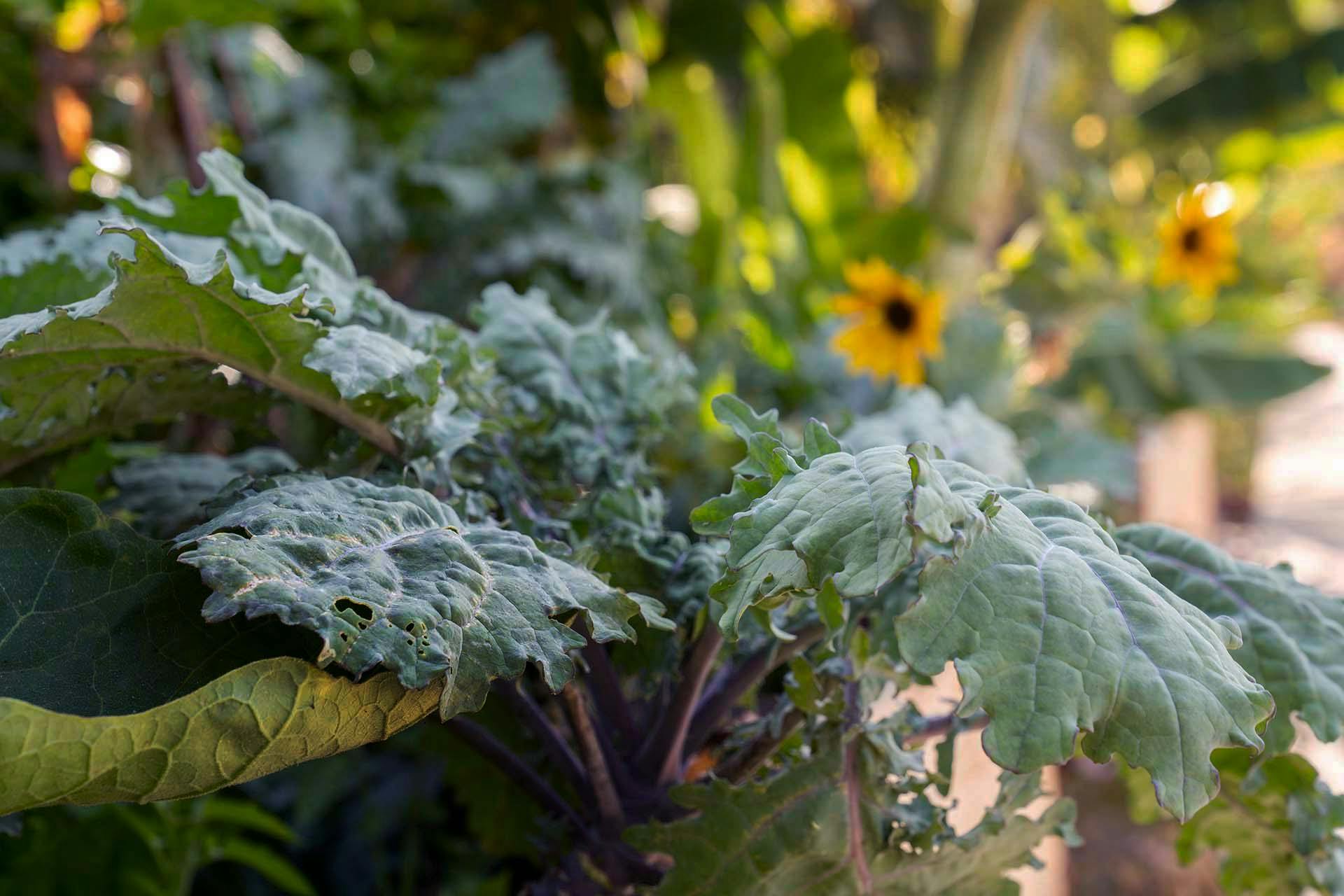Over 12,000 Pounds of Food Waste Diverted and Composted from Participating Businesses
Food decomposing in a landfill releases methane, a greenhouse gas 86 times more potent than carbon dioxide. By composting locally, we reduce transportation associated with hauling waste to faraway processing facilities, which lowers smog-forming air pollutants and carbon dioxide emissions. Simultaneously, applying compost builds healthy soils, increases water retention, and enhances soil carbon sequestration.
Table to Farm, initiated in 2016, partners with Environmental Charter Schools’ (ECS) three campuses, Environmental Charter Middle School-Inglewood, Environmental Charter High School-Gardena, and Environmental Charter High School-Lawndale, to implement community composting. These three compost facilities serve the school, community, and local restaurants interested in recycling organic food scraps. As of 2020, TBF and ECS co-established a community garden outside Environmental Charter Middle School-Inglewood’s campus. As of 2023, fruit trees also line this parkway space and community garden. This food forest utilizes compost to grow nourishing produce for the surrounding community.
Stay tuned to our events page for upcoming Environmental Charter Middle School-Inglewood volunteer garden days.
Project Highlights
